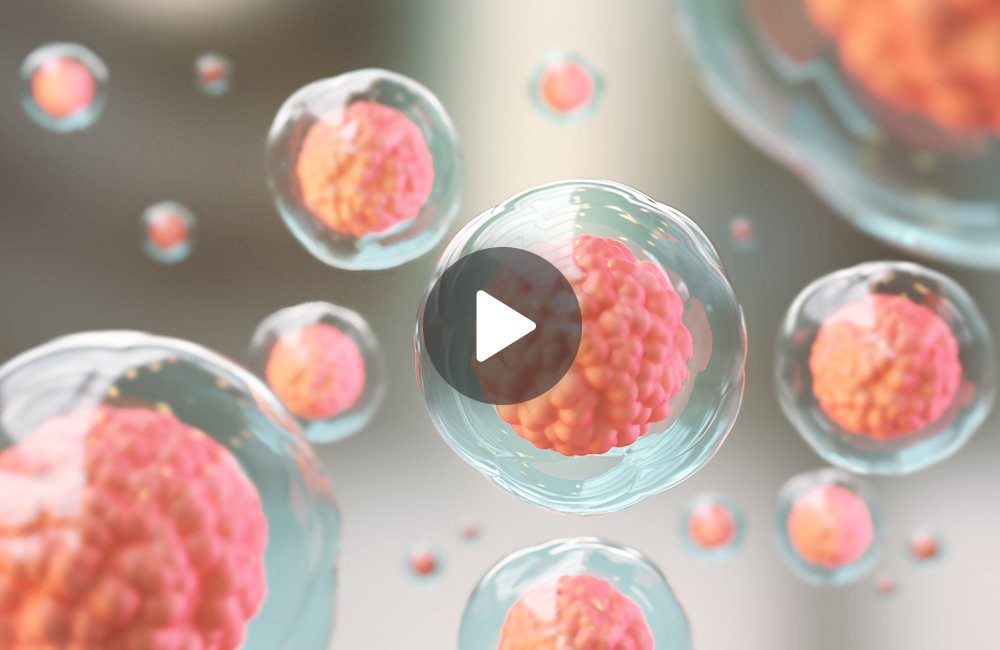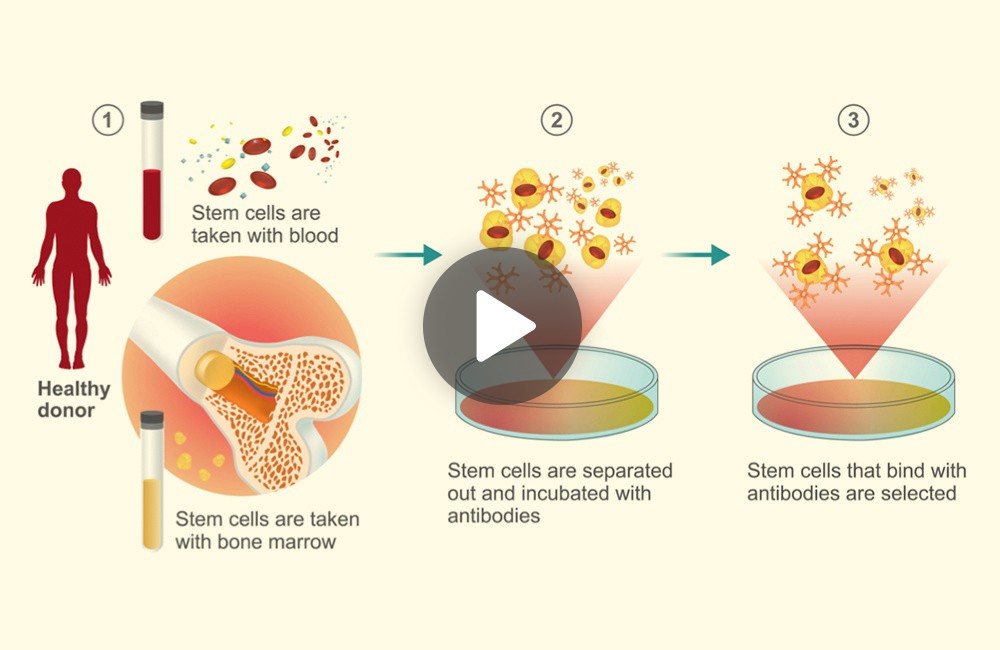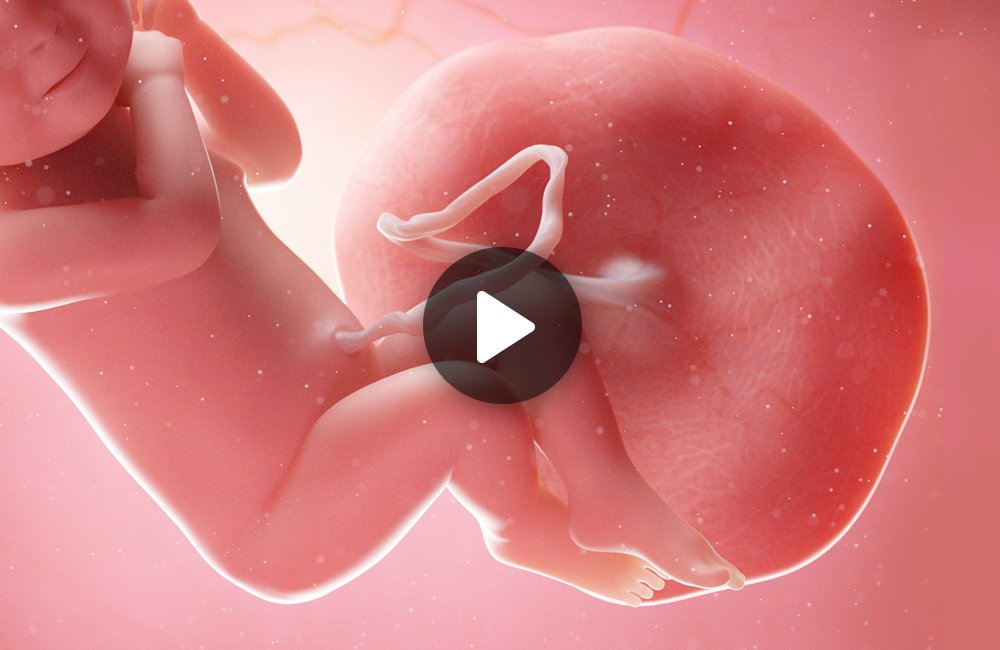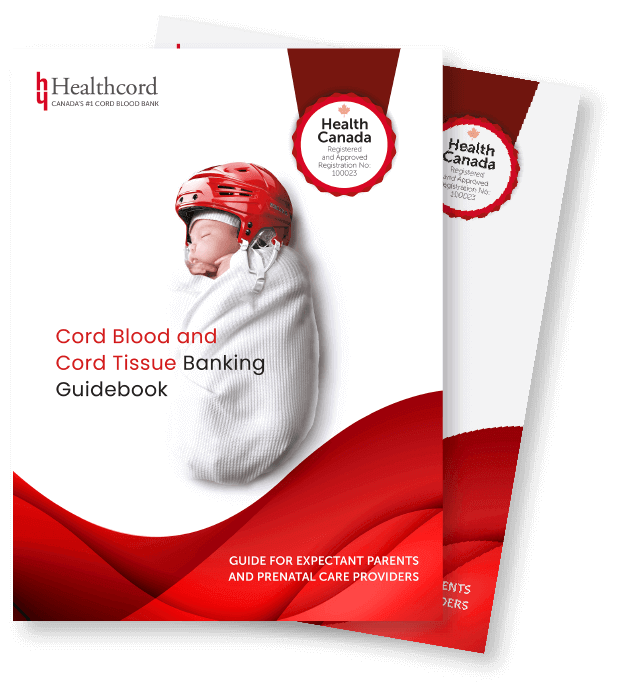Healthcord Webinar Series
The future of stem cell therapy
Duration
5:00 minutes
Category
Stem cell basics
Series
Cord blood banking
Objective
Educational
What you will learn
- How clinical trials are extending the use of stem cells
- The growth of clinical trials involving stem cells
- STAR-heart clinical trial looking at stem cell therapy for heart failure
- Clinical trials involving type 2 diabetes and stem cell therapy
The future of stem cell therapy
This lesson focuses on the future of stem cell therapies by exploring how scientists around the world are engaged in promising clinical trials to extend the potential of stem cells.
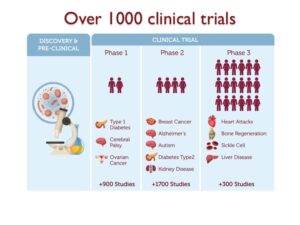 Stem cell research is one of the fastest-growing branches of medical research. Over 1000 clinical trials are exploring the use of both cord blood and cord tissue stem cells to treat diseases such as osteoporosis, Alzheimer’s, diabetes, breast cancer, liver failure and arthritis.
Stem cell research is one of the fastest-growing branches of medical research. Over 1000 clinical trials are exploring the use of both cord blood and cord tissue stem cells to treat diseases such as osteoporosis, Alzheimer’s, diabetes, breast cancer, liver failure and arthritis.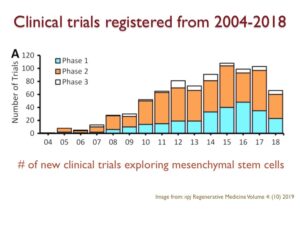
Interestingly, newborn stem cells from cord blood and cord tissue are the second largest category being explored for their potential as a future therapeutic.
Scientists are likely only at the tip of the iceberg in terms of developing new treatments for diseases using stem cells.
Hence the remainder of this article will focus on how clinical trials are exploring the potential of using stem cell therapy to treat heart disease and type 2 diabetes.
The STAR-heart trial
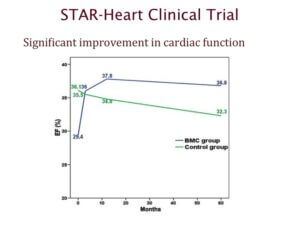 The STAR heart study is one of the largest clinical trials examining the use of stem cells to treat patients with heart disease.
The STAR heart study is one of the largest clinical trials examining the use of stem cells to treat patients with heart disease.
This trial involved 391 patients with chronic heart failure, who had experienced a heart attack 3 to 8 years prior to the study.
Results from this study show that patients who received stem cells experienced an improvement in heart function after treatment and were able to maintain these improvements in the long-term.
What’s more, there was also a significant decrease in the long-term mortality rates of patients who received stem cells after a heart attack. The average mortality rate of the group that received stem cells was 0.75% per year compared to 3.68% per year seen in the control group that did not receive stem cells.
In summary, the STAR-heart study suggests that stem cell therapy can improve heart function, quality of life and enhance the survival rates in people with chronic heart failure.
Type 2 diabetes
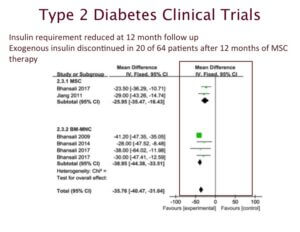 Type 2 diabetes is a metabolic disease linked to the hormone insulin. Insulin is responsible for regulating blood sugar levels. People with type 2 diabetes are unable to either produce insulin or are unable to produce the hormone insulin, so their blood sugar levels remain constantly high.
Type 2 diabetes is a metabolic disease linked to the hormone insulin. Insulin is responsible for regulating blood sugar levels. People with type 2 diabetes are unable to either produce insulin or are unable to produce the hormone insulin, so their blood sugar levels remain constantly high.
Results from 11 clinical trials involving 386 patients with type 2 diabetes treated with stem cell therapy show that most patients experience significant improvement.
In the lifetime of your child, there is an 87% chance that he or she will go on to develop at least one of the six diseases listed here. By choosing to save healthy stem cells today, you will be providing your child access to future therapies that become available in their lifetime.
More topics you might like
Continue your journey by selecting another topic.
What are newborn stem cells and why are they important?
3:45 minutes | Stem cell basics
Understand the different types of stem cell transplants.
5:30 minutes | Stem cell basics
Discover more about the placenta, cord blood and cord tissue.
4:00 minutes | Stem cell basics
A Precious Gift of a Lifetime
Registering for stem cell banking takes only a few minutes.
A Precious Gift of a Lifetime
Registering for stem cell banking takes only a few minutes.



